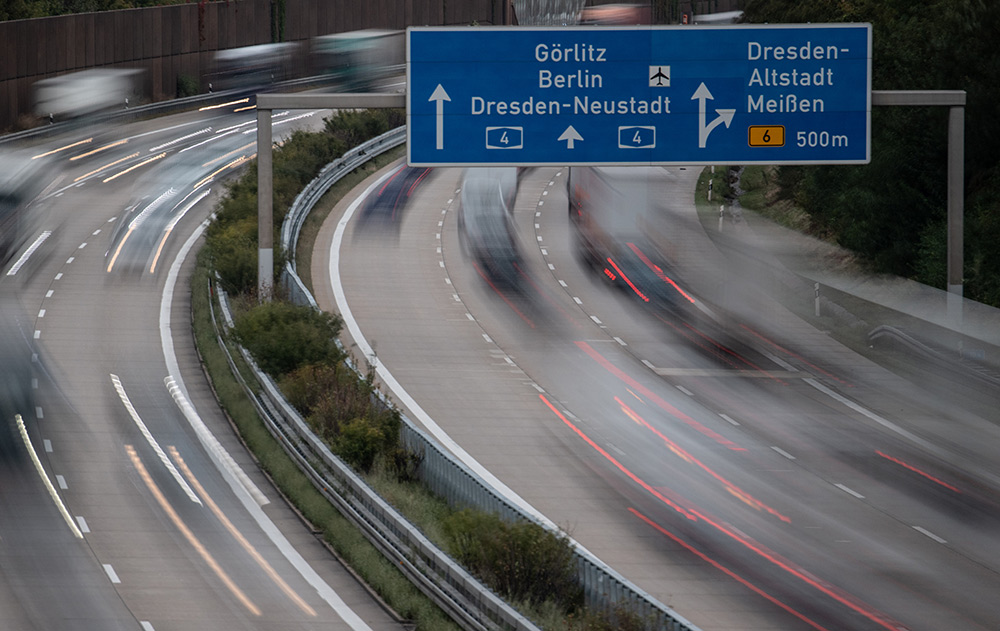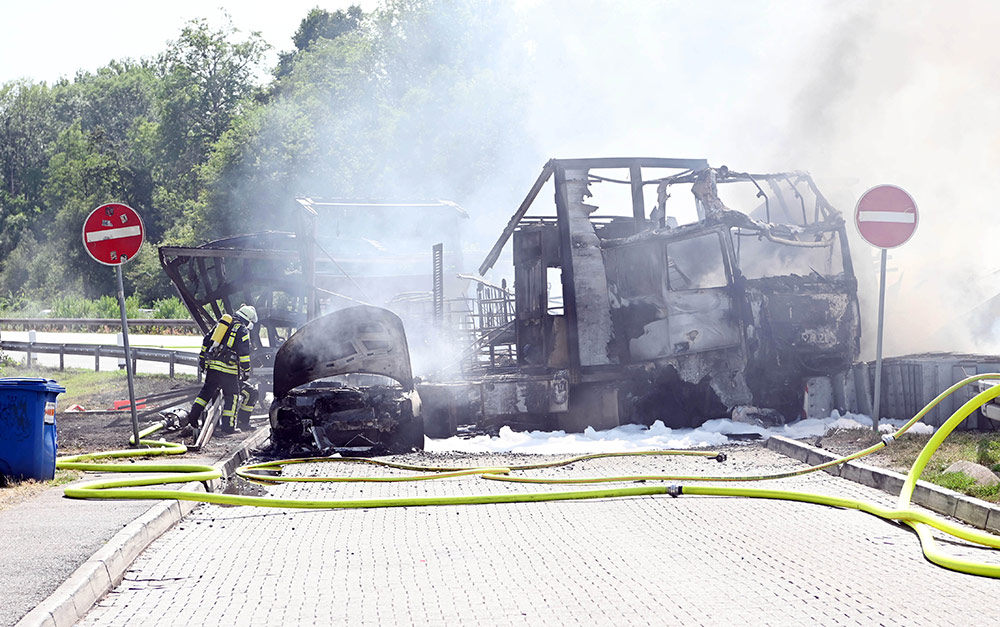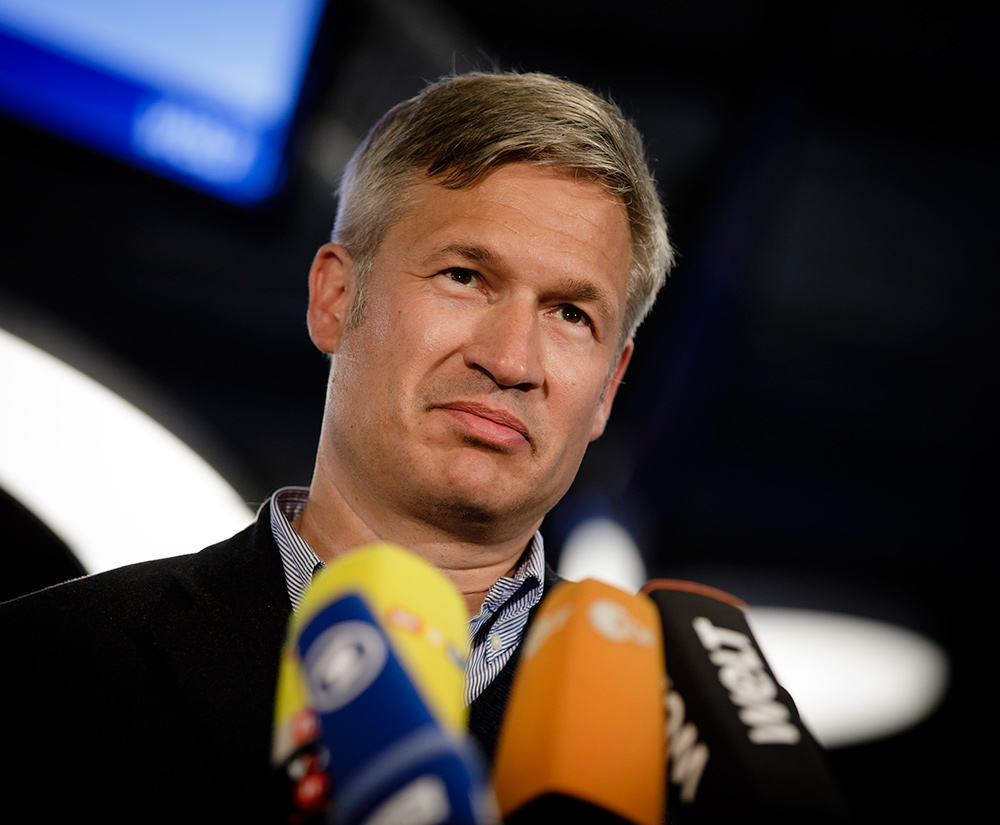
幾十年來,德國立法者一直在為是否應對高速公路實施限速爭論不休,而大部分人都對限速持反對態度。
但是現在,德國人的飆車癮卻遭到了迄今為止最大的挑戰。越來越多的人擔心,德國的飆車文化將給環境和公共安全帶來影響。
最近,以環境和公共安全為由支持高速公路限速的德國綠黨在2021年大選中異軍突起,而德國的幾家著名汽車廠商仍然堅持不限速的立場。一場決定性的沖突似乎已經在所難免。
上個月,德國議會上院投票否決了對高速公路實施130公里/小時限速的議案,不過這很可能并不是最終結果。目前,綠黨的民調支持率約為20%,已成為德國支持率第二高的政黨。另外,德國社會民主黨的新一屆領導層,以及德國總理默克爾領導的保守派,也加入了支持限速的陣營。
德國公眾對限速問題也存在分歧,根據民調公司Infratest Dimap的數據,大約有略多于一半的德國人支持實施130公里/小時的限速,這個比例在過去好幾年里都保持了穩定水平。
不過,奧迪、奔馳、寶馬等高檔汽車生產商當然是不想讓高速公路限速的,而且這些車企在德國很有影響力,他們也想對力推限速的人傳達一個信息——且慢。
梅賽德斯-奔馳的母公司戴姆勒的一位發言人表示:“總的來說,我們認為,不對客戶進行限制,并且提供他們想要的產品,這樣才是比較好的。”寶馬則表示,該公司“只支持對高危路段限速,而且前提是沒有用限速來代替道路擴建或翻修項目。”大眾集團則表示,限速的提案沒有什么意義。就算德國的高速公路全線限速了,“它也只是具有象征意義”。
德國的汽車制造商在政治上擁有舉足輕重的影響力,尤其是在保守派和寶馬的老家巴伐利亞等地。巴伐利亞州的主要政黨基社盟和默克爾領導的基民盟一直在努力反對限速。去年,他們就在議會里挫敗了綠黨的一項限速提案。出身基社盟的德國交通部長安德里亞斯·朔伊爾當時曾表示,對高速公路實施限速“違反了所有的常識”。
歸根結底,只要德國人繼續購買高性能汽車,德國的汽車廠商及其盟友們就會繼續生產它們。“他們了解客戶,我們就是喜歡開快車。”德國《世界報》主編烏爾夫?波夏特說。他就是一個旗幟鮮明反對限速的人。
綠黨崛起
德國聯邦議會議員、綠黨的議員團副領袖奧利弗·克里斯切爾對我表示:“我們的主要動機是安全,通過實施限速,致死致傷的嚴重交通事故可以減少一半。”
德國是歐洲唯一一個沒有正式對高速公路實施限速的國家。但在德國近8000英里的高速路網中,大約有30%已經實現了某種形式的限速。在很多情況下,這是由道路彎曲或交通繁忙造成的。這些危險路段的交通事故當然要比那些不繁忙的路段多。然而限速路段事故率高于不限速路段,這被很多反對限速的車友經常用來當作說辭。
反對限速者還指出,德國的高速公路是全世界最安全的。不過經合組織(OECD)的最新數據顯示,德國的高速公路安全性就算在歐洲排名也不算高。據德國《明鏡周刊》最近計算,實施高速公路限速可每年避免140人死亡(政府的統計數據顯示,2017年,德國的公路交通事故死亡人數達409人)。對德國部分已實行了限速的州的研究表明,限速措施確實能夠減少交通事故和人員傷亡。

從環境上看,限速也會導致德國的碳排放水平略微下降。去年,德國聯邦環境署曾呼吁政府將限速納入環保改革方案。當然,像大眾集團這樣的汽車廠商還是更愿意強調其他效率措施,比如將交通流量數字化。大眾的發言人表示:“大眾關注的是智能的、可靠的解決方案,而不是禁令。”
克里斯切爾表示,不管怎樣,綠黨都將在明年夏天和秋天的聯邦大選期間再次強調限速的問題。他表示:“很少有人真正喜歡在沒有限速的路段開車,因為經常會有汽車以180公里/小時以上的速度從后面接近你。”
飆車自由
限速也很可能引發部分民眾的抗拒。限速一直是德國社會里一個爭議很大的問題。從文化上看,德國人就是有“飆車癮”。
汽車一直是幾代德國人心中的一個重要的國家符號。(世界上的第一臺量產汽車就是1885年由德國工程師卡爾·本茨發明的。)德國的高速公路本身也在德國人的情感中占有一定地位——今天的德國高速路網最初是由納粹政權建造的,后來在20世紀60年代得到擴建,成為了德國戰后經濟繁榮的一個象征。
《世界報》的主編波夏特說道:“德國的高速公路太棒了,它相當于是我們的自由女神像,所以別碰它。”

如今,全球的汽車愛好者都想去德國體驗一把不限速的快感。就連德國聯邦政府都將它列為“在德國必須做的七件事之一”。
歷史學家、波茨坦萊布尼茨當代歷史中心教授斯托弗·諾伊梅爾表示:“德國沒有短程高速賽車競賽之類的東西,你可以短時間內快速加速,這沒什么。在德國,汽車是長途高速行駛的。”
改變看法
在1973年的能源危機中,德國曾短暫地對高速公路實行限速,并呼吁開展“無車星期日”活動,但這些毫不例外地遭到了人們的強烈抵制。德國最大的汽車協會ADAC則喊出了“自由公民,自由駕駛”(“Freie Fahrt fur Freie Burger !”)的口號——這句話現在已經成了一句家喻戶曉的戰斗口號了。
不過,事情正在起變化。今年1月,ADAC取消了反對限速的立場,并稱該組織的成員在限速問題上或多或少存在分歧。ADAC的交通副會長還對德新社表示,該協會將“不再從根本上”反對對高速公路實施全面限速。
對于一個為汽車行業代言的組織來說,這種態度的轉變是相當重大的。諾伊梅爾表示:“現在,一個大型的游說團體已經消失了,汽車行業將做何反應,這是一個有趣的問題。”
目前,汽車制造商們還是拒絕改變立場。“我們反對全面限速,因為它沒有令人信服的理由。我們認為這只是一次象征性的辯論,這些年它時不時就會被拿出來說事。”德國汽車工業協會的一位發言人表示。
波夏特認為,綠黨和環保者最終一定會勝出,而這將在相當程度上剝奪他駕駛保時捷的樂趣。“我的這部保時捷GT3RS里的‘GT’兩個字母,代表的是格蕾塔·桑伯格,我希望她能意識到,德國高速公路的速度是不值得她對抗的。”(桑伯格并未對此發表評論。)
對于外部觀察者和很多德國人來說,高速公路不限速,與其說是自由,不如說是某種奇怪的、危險的癖好。限速問題在德國引起的種種爭議,也使很多人不由自主地拿它與美國的自由作比較。
諾伊梅爾表示,在很多德國人心中,高速公路不限速是一項基本自由,就像美國人有“持有和攜帶槍支”的自由一樣。(財富中文網)
譯者:隋遠洙
幾十年來,德國立法者一直在為是否應對高速公路實施限速爭論不休,而大部分人都對限速持反對態度。
但是現在,德國人的飆車癮卻遭到了迄今為止最大的挑戰。越來越多的人擔心,德國的飆車文化將給環境和公共安全帶來影響。
最近,以環境和公共安全為由支持高速公路限速的德國綠黨在2021年大選中異軍突起,而德國的幾家著名汽車廠商仍然堅持不限速的立場。一場決定性的沖突似乎已經在所難免。
上個月,德國議會上院投票否決了對高速公路實施130公里/小時限速的議案,不過這很可能并不是最終結果。目前,綠黨的民調支持率約為20%,已成為德國支持率第二高的政黨。另外,德國社會民主黨的新一屆領導層,以及德國總理默克爾領導的保守派,也加入了支持限速的陣營。
德國公眾對限速問題也存在分歧,根據民調公司Infratest Dimap的數據,大約有略多于一半的德國人支持實施130公里/小時的限速,這個比例在過去好幾年里都保持了穩定水平。
不過,奧迪、奔馳、寶馬等高檔汽車生產商當然是不想讓高速公路限速的,而且這些車企在德國很有影響力,他們也想對力推限速的人傳達一個信息——且慢。
梅賽德斯-奔馳的母公司戴姆勒的一位發言人表示:“總的來說,我們認為,不對客戶進行限制,并且提供他們想要的產品,這樣才是比較好的。”寶馬則表示,該公司“只支持對高危路段限速,而且前提是沒有用限速來代替道路擴建或翻修項目。”大眾集團則表示,限速的提案沒有什么意義。就算德國的高速公路全線限速了,“它也只是具有象征意義”。
德國的汽車制造商在政治上擁有舉足輕重的影響力,尤其是在保守派和寶馬的老家巴伐利亞等地。巴伐利亞州的主要政黨基社盟和默克爾領導的基民盟一直在努力反對限速。去年,他們就在議會里挫敗了綠黨的一項限速提案。出身基社盟的德國交通部長安德里亞斯·朔伊爾當時曾表示,對高速公路實施限速“違反了所有的常識”。
歸根結底,只要德國人繼續購買高性能汽車,德國的汽車廠商及其盟友們就會繼續生產它們。“他們了解客戶,我們就是喜歡開快車。”德國《世界報》主編烏爾夫?波夏特說。他就是一個旗幟鮮明反對限速的人。
綠黨崛起
德國聯邦議會議員、綠黨的議員團副領袖奧利弗·克里斯切爾對我表示:“我們的主要動機是安全,通過實施限速,致死致傷的嚴重交通事故可以減少一半。”
德國是歐洲唯一一個沒有正式對高速公路實施限速的國家。但在德國近8000英里的高速路網中,大約有30%已經實現了某種形式的限速。在很多情況下,這是由道路彎曲或交通繁忙造成的。這些危險路段的交通事故當然要比那些不繁忙的路段多。然而限速路段事故率高于不限速路段,這被很多反對限速的車友經常用來當作說辭。
反對限速者還指出,德國的高速公路是全世界最安全的。不過經合組織(OECD)的最新數據顯示,德國的高速公路安全性就算在歐洲排名也不算高。據德國《明鏡周刊》最近計算,實施高速公路限速可每年避免140人死亡(政府的統計數據顯示,2017年,德國的公路交通事故死亡人數達409人)。對德國部分已實行了限速的州的研究表明,限速措施確實能夠減少交通事故和人員傷亡。
從環境上看,限速也會導致德國的碳排放水平略微下降。去年,德國聯邦環境署曾呼吁政府將限速納入環保改革方案。當然,像大眾集團這樣的汽車廠商還是更愿意強調其他效率措施,比如將交通流量數字化。大眾的發言人表示:“大眾關注的是智能的、可靠的解決方案,而不是禁令。”
克里斯切爾表示,不管怎樣,綠黨都將在明年夏天和秋天的聯邦大選期間再次強調限速的問題。他表示:“很少有人真正喜歡在沒有限速的路段開車,因為經常會有汽車以180公里/小時以上的速度從后面接近你。”
飆車自由
限速也很可能引發部分民眾的抗拒。限速一直是德國社會里一個爭議很大的問題。從文化上看,德國人就是有“飆車癮”。
汽車一直是幾代德國人心中的一個重要的國家符號。(世界上的第一臺量產汽車就是1885年由德國工程師卡爾·本茨發明的。)德國的高速公路本身也在德國人的情感中占有一定地位——今天的德國高速路網最初是由納粹政權建造的,后來在20世紀60年代得到擴建,成為了德國戰后經濟繁榮的一個象征。
《世界報》的主編波夏特說道:“德國的高速公路太棒了,它相當于是我們的自由女神像,所以別碰它。”
如今,全球的汽車愛好者都想去德國體驗一把不限速的快感。就連德國聯邦政府都將它列為“在德國必須做的七件事之一”。
歷史學家、波茨坦萊布尼茨當代歷史中心教授斯托弗·諾伊梅爾表示:“德國沒有短程高速賽車競賽之類的東西,你可以短時間內快速加速,這沒什么。在德國,汽車是長途高速行駛的。”
改變看法
在1973年的能源危機中,德國曾短暫地對高速公路實行限速,并呼吁開展“無車星期日”活動,但這些毫不例外地遭到了人們的強烈抵制。德國最大的汽車協會ADAC則喊出了“自由公民,自由駕駛”(“Freie Fahrt fur Freie Burger !”)的口號——這句話現在已經成了一句家喻戶曉的戰斗口號了。
不過,事情正在起變化。今年1月,ADAC取消了反對限速的立場,并稱該組織的成員在限速問題上或多或少存在分歧。ADAC的交通副會長還對德新社表示,該協會將“不再從根本上”反對對高速公路實施全面限速。
對于一個為汽車行業代言的組織來說,這種態度的轉變是相當重大的。諾伊梅爾表示:“現在,一個大型的游說團體已經消失了,汽車行業將做何反應,這是一個有趣的問題。”
目前,汽車制造商們還是拒絕改變立場。“我們反對全面限速,因為它沒有令人信服的理由。我們認為這只是一次象征性的辯論,這些年它時不時就會被拿出來說事。”德國汽車工業協會的一位發言人表示。
波夏特認為,綠黨和環保者最終一定會勝出,而這將在相當程度上剝奪他駕駛保時捷的樂趣。“我的這部保時捷GT3RS里的‘GT’兩個字母,代表的是格蕾塔·桑伯格,我希望她能意識到,德國高速公路的速度是不值得她對抗的。”(桑伯格并未對此發表評論。)
對于外部觀察者和很多德國人來說,高速公路不限速,與其說是自由,不如說是某種奇怪的、危險的癖好。限速問題在德國引起的種種爭議,也使很多人不由自主地拿它與美國的自由作比較。
諾伊梅爾表示,在很多德國人心中,高速公路不限速是一項基本自由,就像美國人有“持有和攜帶槍支”的自由一樣。(財富中文網)
譯者:隋遠洙
But now Germans’ deeply held right to drive fast is facing its biggest challenge in a generation, sparked by intensifying fears about the environmental and public safety impact of the country’s need-for-speed culture.
Today, a decisive clash seems inevitable, as the Green Party—which supports speed limits on environmental and safety grounds—rises in the run-up to the 2021 elections, and Germany's storied automakers dig in their heels in opposition.
Germany’s upper house of Parliament last month voted down a 130 km/h (80 mph) speed limit, but that vote likely only offers a temporary stay. In addition to the Greens, which at roughly 20% in the polls, is now the second-most popular party in Germany, the new leadership of the Socialists (SPD), the junior governing partner with Chancellor Angela Merkel’s conservatives, has also taken up the cause.
The German public itself appears to be divided: according to polling company Infratest Dimap, slightly more than half of Germans are in favor of the 130 km/h highway speed limit, a level of support that has stayed relatively constant over the past few years.
But influential German carmakers, who churn out sporty automobiles like Audis, Mercedes, and BMWs, want no part of it, and they have a message for those who hope to finally place a speed limit on the country’s cherished motorways: Slow down.
Mercedes-Benz owner Daimler? “In general we consider it a good idea not to restrict customers, but offer products they want,” a spokesperson said. BMW is “only in favor of speed limits for high-risk sections of road, as long as speed limits are not instead of road expansion or renewal projects.” And Volkswagen dismissed the significance of the proposed changes. Even if a general speed limit were passed, the carmaker says, it "would have more of a symbolic character.”
Automakers in Germany hold significant political sway, particularly among conservatives and in places like Bavaria, BMW’s home region. The CSU, the Bavarian partner with Merkel’s CDU, has fought hard against speed restrictions, helping to defeat a Green Party-backed measure last year in the Bundestag. CSU Transport Minister Andreas Scheuer said at the time that an Autobahn speed limit “defies all common sense.”
Ultimately, Germany's carmakers and their allies are content to keep producing speedy cars as long as Germans are buying them. “They know their clients. We love to go fast,” said Ulf Poschardt, the editor-in-chief of German newspaper Die Welt and an outspoken voice against a speed limit.
Greens rising
“Our main incentive is safety,” Oliver Krischer, a member of the Bundestag for the Greens and the party’s deputy parliamentary group leader, told me. “Traffic accidents with fatal casualties and injured may be cut in half through a speed limit.”
Though Germany is the only country in Europe without an official highway speed limit, about 30% of the 8,000-mile Autobahn network already has some sort of cap, in many cases due to curvy roads or high levels of traffic. These more treacherous stretches naturally see a higher number of accidents than less busy pedal-to-the-metal zones, a point that many pro-speeding enthusiasts like to cite.
Autobahn advocates also contend that Germany has the safest highways in the world, though new OECD data suggests that Germany doesn’t even rank highly in Europe. According to a recent calculation from Der Spiegel, a speed limit could prevent up to 140 deaths a year (government statistics pegged highway traffic deaths at 409 in 2017). Studies looking at local German states that have imposed speed limits also showed that they resulted in fewer accidents, injuries, and deaths.
Environmentally, a speed limit would cause a slight reduction in German carbon emissions, and last year, Germany’s Federal Environment Agency called on the government to introduce the limit as part of a package of green changes. Car companies like Volkswagen, of course, would rather emphasize other kinds of efficiency measures, like digitizing traffic flow. “At Volkswagen, we focus on intelligent, sound solutions rather than bans,” the spokesperson said.
Krischer said that the Green Party nevertheless intends to highlight the issue heading into the next German federal election expected to be held between summer and fall 2021. “Few people truly enjoy driving in areas without a speed limit because cars frequently approach them [going] 180 km/h (112 mph) or more from behind,” he said.
Turbo-charged freedom
The potential change has faced serious pushback. The speed limit conversation has long been a third rail in domestic politics and, culturally, it’s hard to overstate just how passionately many Germans cling to their turbo-charged freedoms.
The automobile has functioned as a core national symbol for generations (Karl Benz, a German engineer, is credited with inventing the first modern production car in 1885). The Autobahn itself holds a unique sentimental status: The motorway network, first constructed by the Nazi regime, expanded in the 1960s and came to represent Germany’s post-war economic boom.
“The Autobahn is just brilliant,” Die Welt editor-in-chief Poschardt said. “It is our Statue of Liberty. Don’t touch it.”
Nowadays, car-enthusiasts flock to Germany to drive on the Autobahn. Even the federal government recommends it as “one of the seven things you must do in Germany.”
“We don’t have something like drag racing in Germany, where you accelerate quickly and that’s fine. In Germany, it’s high speeds over long distances,” said Christopher Neumaier, a historian and professor at the Leibniz Centre for Contemporary History Potsdam.
Changing views
During the 1973 energy crisis, a brief Autobahn speed restriction and series of “car free Sundays” were met with deep resistance. The ADAC, Germany’s biggest car club, coined the slogan “Freie Fahrt für freie Bürger!” — “free driving for free citizens” — which became a well-known rallying cry.
Now, however, things are changing at the ADAC. A kind of hardcore version of US road-side assistance organization AAA, the ADAC walked back its anti-speed limit stance in January, saying that its members were more or less divided on the issue. The club is now “no longer fundamentally” against the general speed cap, its vice president for traffic told German news agency DPA.
The move marked a major shift for full-throttle car advocates in Germany. “Now that one of the big lobbying groups has disappeared, the interesting question is how the car industry will react,” Neumaier said.
For the time being, automakers refuse to change course. “We reject a general speed limit, as there are no convincing arguments for this. Rather, it is a symbol debate that has been activated time and again for years,” said a spokesperson for the Verband der Automobilindustrie, the German automaker trade group.
Poschardt predicts that the Greens and climate activists will ultimately win out, which he believes will take away much of the joy he derives from driving his Porsche. “The GT in my GT3RS stands for Greta Thunberg, and I hope she will realize that the speed on the Autobahn is not worth fighting against.” (Thunberg has not commented on the issue).
For outside observers and plenty of Germans alike, the lack of a speed limit is one of the more odd and potentially dangerous quirks of the country. The intensity it provokes also tends to draw a comparison to a similarly controversial American freedom.
“It’s the German right to ‘keep and bear arms,'” Neumaier said.






